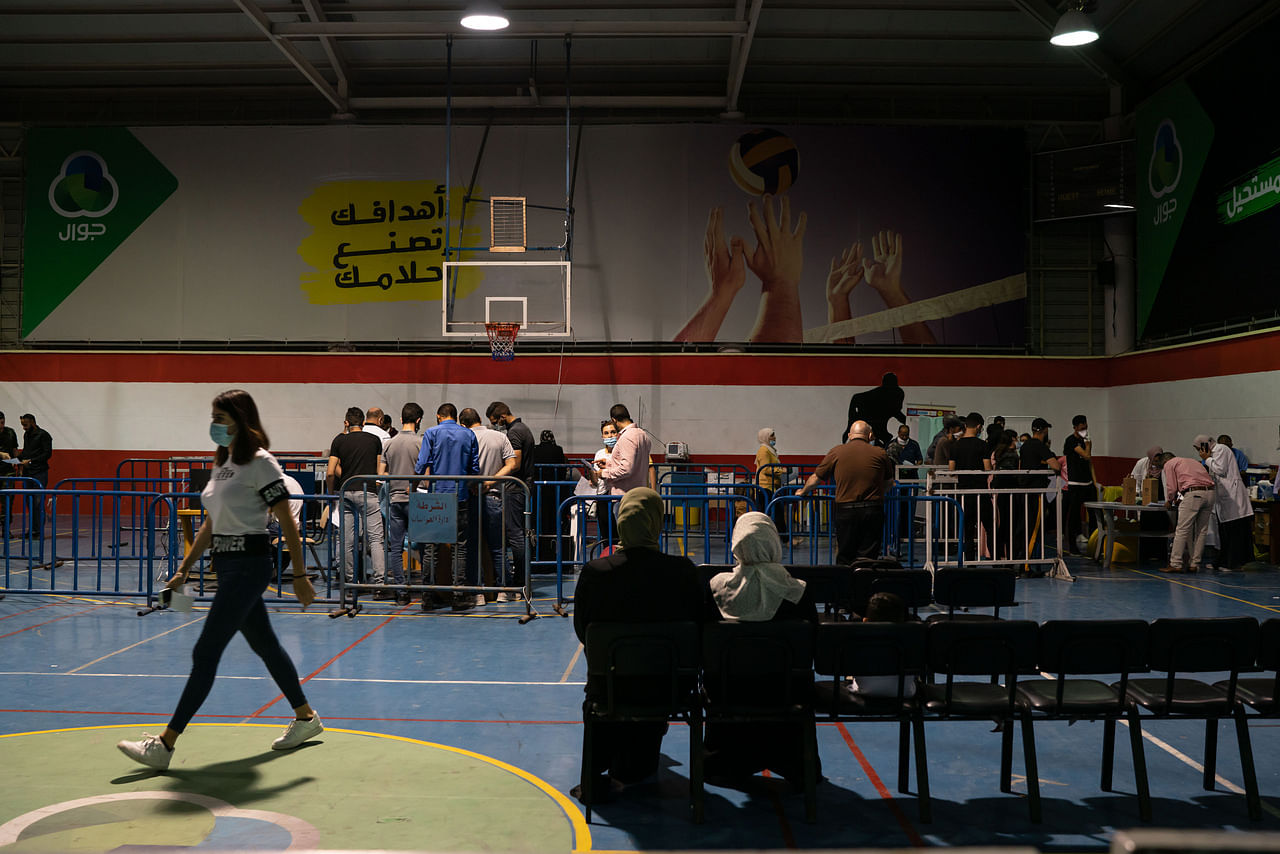Home » Middle East »
Palestinians finally have Covid-19 vaccines. But will people take them?
BETHLEHEM, WEST BANK (NYTIMES) – Since the coronavirus first emerged in the occupied West Bank, Ms Suha Gadeon has worn her mask assiduously, avoided mingling with friends and declined to host family members or attend public gatherings.
But Ms Gadeon, 41, the membership director at the Bethlehem Chamber of Commerce, has refused to receive the Covid-19 vaccine, worrying about side effects like blood clots, heart complications and hair loss. While some damaging side effects have been found, they are extremely rare and health experts say the benefits of getting vaccinated far exceed the risks.
“I’m strongly opposed to taking the vaccine now,” she said. “I would only be comfortable after a three- to five-year study proves that it is safe to get.”
For months, Palestinian authorities in the West Bank and the blockaded Gaza Strip struggled to inoculate residents for want of vaccine supplies. Now they have received millions of doses but they are facing a new challenge: persuading a majority of the public to get the shots.
“We’ve got vaccines, but we urgently need people to get vaccinated,” said Dr Shadi al-Liham, the top Health Ministry official in the Bethlehem district. “They are critical to helping us get through the pandemic.”
The number of new cases of the virus in the West Bank and Gaza jumped significantly over the past week, reaching 868 in the West Bank on Thursday (Aug 26) and 1,021 in Gaza on Friday, the highest single-day figures in months. The number of hospitalisations in both territories has roughly tripled in the last two weeks.
But only 37 per cent of eligible West Bank residents have received at least one dose of vaccine, and about 18 per cent in Gaza, according to health officials in the two territories.
Disinformation and conspiracy theories, along with more well-founded concerns about waning vaccine efficacy, have contributed to widespread hesitancy about getting inoculated, according to Dr Abdulsalam al-Khayyat, director of the public health department at An Najah University’s medical school in Nablus, in the West Bank.
“Many people simply are not receiving reliable information about the vaccines,” he said.
This past week, the Palestinian Authority and Hamas, the Islamist militant group that rules Gaza, ordered government employees to get vaccinated in an effort to increase compliance.
Refusing to be vaccinated “is not a matter of personal freedom,” Prime Minister Mohammad Shtayyeh of the Palestinian Authority said in announcing the decision. “Your freedom ends when it causes harm to others’ health.”
The authority said that public sector employees who do not get vaccinated would be placed on unpaid leave until the end of the pandemic. The government is the West Bank’s largest employer, and Palestinian officials said that the number of vaccinations increased substantially in recent days, after the government order took effect.
In Gaza, all government employees must be vaccinated or face legal measures, said Mr Ashraf al-Qidra, a spokesperson for the Health Ministry. And anyone in the private sector whose work brings them into direct contact with the public must be vaccinated, too, if they want to stay in their jobs, Mr al-Qidra said.
Since the Palestinians began receiving international shipments in February, they have received more than 2.8 million doses, according to the World Health Organisation, enough to fully vaccinate most of the eligible population.
Authorities in the West Bank and Gaza are in the process of receiving or negotiating deals for about an additional 4.6 million doses, the organisation said.
Palestinian health officials said that more than 1.2 million doses had already been administered. An American donation of 500,000 doses arrived this week, and an order of 4 million Pfizer doses was arriving in batches.
Dr Richard Peeperkorn, the WHO representative in the West Bank and Gaza, said that the authorities still needed many more vaccines to inoculate an overwhelming majority of the population.
“There’s still a long way to go,” he said.
Join ST’s Telegram channel here and get the latest breaking news delivered to you.
Source: Read Full Article



